34th Avenue Slow Street
34th Avenue Slow Street
2023 - $15,000 General Operating Support
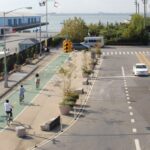

Brooklyn Greenway
2023 - $15,000 General Operating Support
Brooklyn Greenway Initiative (BGI) is committed to the development, establishment, and long-term stewardship of the Brooklyn Waterfront Greenway – a 29-mile protected and landscaped route for pedestrians and cyclists of all ages and abilities. When complete, the Greenway will connect Brooklyn’s waterfront, parks, and open space, commercial and cultural corridors, and new tech and innovation hubs for 2.65 million Brooklyn residents, over 1.1 million people who work in Brooklyn, and 15 million annual visitors from across New York City and around the world.
Since its founding in 2004, BGI has channeled more than $218 million in public and private investment toward implementation of the Greenway, leveraged public and private investment of $2.38 million toward the creation of the Naval Cemetery Landscape (NCL) as a new park-like space and memorial meadow adjacent to the Greenway, and conceptualized or supported the development and stewardship of other open spaces and public amenities along the Greenway. BGI hosts numerous public events and programs designed to activate the Greenway and NCL, foster critical support and stewardship for this vital public infrastructure, and build awareness and engagement of BGI as the organization dedicated to their long-term care.
Approximately 21 miles of the Brooklyn Waterfront Greenway are currently complete, and expansion projects are underway. While progress is encouraging, planning gaps remain, and resources for the Greenway’s ongoing maintenance and stewardship are severely lacking. New York City’s pandemic bikeboom (in 2020, bicycle use on the Greenway soared 3-5 times from 2019 and pedestrian use doubled) and increasing extreme weather have made it abundantly clear that the Greenway is essential intersectional infrastructure for public health and wellbeing, active transportation, and resiliency against the changing climate.
Due to the work of BGI and their partners, there is strong momentum to advance greenways in Brooklyn and across New York City. To make progress on this work, BGI is focusing on the following programs in 2024.
New York City Greenways Coalition: In 2021, BGI formed the New York City Greenways Coalition, a group of greenway-aligned partners focused on completion and continual enhancement of an equitable greenway network in New York City. The coalition has successfully advocated for a citywide greenways plan, in addition to federally funded greenway corridor planning across New York City. In the fall of 2024, Brooklyn Greenway Initiative is building support to host their second NYC Greenways Summit - a convening of greenway-invested stakeholders across sectors to share expertise on the need for comprehensive planning, implementation, and upkeep of a fully developed greenway network in NYC. Attendees of the summit will receive a greater understanding of New York’s City transportation policy and clear next steps for influencing policymakers to support greenway infrastructure.
Brooklyn Waterfront Greenway Advocacy, Community Engagement, and Stewardship: The Brooklyn Waterfront Greenway still has 8 miles to go to complete its 29 mile corridor from Greenpoint to East New York. In 2024, BGI will continue to build partnerships to advocate for completion and engage communities across Brooklyn in stewardship activities, bike rides, and other activities to increase awareness and use of greenways.
Brooklyn Waterfront Greenway User Study: To improve the greenway and advocate for completion, BGI needs to better understand who’s using it and how. In March 2023, BGI launched a 13-month study to measure use along 29 miles of the Brooklyn Waterfront Greenway. With our project partners, BGI installed 32 computer sensors along the corridor to measure the volume of use and mode of use (pedestrian, bicycle, skateboard, etc.) for 24 hours each day. In 2024, BGI will publish a report of the user study’s findings, along with fieldwork data that will work to inform the forthcoming Greenways Master Plan and the community based planning efforts happening concurrently. In addition to usership, BGI will have data to demonstrate the environmental impacts of the Brooklyn Waterfront Greenway and on reduced vehicle trips and carbon emissions.
Naval Cemetery Landscape Public Space: This 1.7 acre public space, pollinator meadow, and historic site is a place for respite and community on the Brooklyn Waterfront Greenway. Fully operated and funded through BGI and their supporters, the landscape is open year round for visitors and hosts dozens of public programs every year. Located in a community that is lacking in greenspace, It is a unique natural area and peaceful spot that welcomed over 14,000 visitors in 2023. In 2024, BGI will continue to maintain an expanded schedule of stewardship events to engage community volunteers in greening projects. BGI will work to develop dynamic public programs, events, and engagement opportunities with community, nonprofit, and corporate partners to grow in-person public engagement, education, nature, art, and wellness programs at the Naval Cemetery Landscape and on the Greenway.
More information about Brooklyn Greenway Initiative is at: brooklyngreenway.org; and the NYC Greenway Coalition, created and maintained by BGI, is here: greenways.nyc.
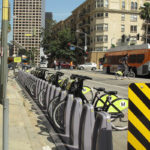

California Bicycle Coalition
2023 - $15,000 Climate Action Plan for Transportation Infrastructure
2021 - $10,000 Engaging with California Action Plan for Transportation Infrastructure (CAPTI)
2020 - $15,000 Toolkit for Temporary Road Closures/ Biking During COVID-19 Pandemic
2019 - $15,000 General Support
2019 - $10,000 General Support
The California Bicycle Coalition Education Fund (CalBike) advocates for equitable, inclusive, and prosperous communities where bicycling helps to enable all Californians to lead healthy and joyful lives.
CalBike is guided by a vision of California where:
Since 1999, CalBike has promoted sustainable transportation and healthy communities. They have organized trainings, conferences, workshops and direct support for bicycle and equity advocates, sharing best practices with local and state-level leaders. They have created toolkits and how-to guides to give local leaders the information they need to implement great bicycle infrastructure. They have succeeded in pressing Caltrans to greatly increase bike/walk infrastructure funding. They have shaped state-level guidelines to encourage protected bike lanes and intersections, making California a leader in the kind of people-friendly street design that encourages bicycling among people of all ages, cultures, genders, and income levels.
CalBike's focus is on the intersection of social justice and sustainable transportation, and their policy team works to redress the discriminatory transportation policies that have divided and polluted California's disadvantaged communities, especially where those policies have disadvantaged people who ride or want to ride bicycles. To that end, CalBike has succeeded in shaping grant guidelines and priorities to ensure that a majority of state bike/walk funds go to disadvantaged communities. They have pushed Caltrans to use highway maintenance funds to build Complete Streets, streets that serve all users, and pressed them to devote more safety funds to biking and walking, along the state highways that often serve as main streets in disadvantaged communities. They work with local community advocates in disadvantaged communities, offering training to help them access bike/walk infrastructure funding. They have worked to connect BIPOC transportation advocacy leaders with the skills and knowledge to effectively promote sustainable transportation policy, and to bring representation of BIPOC communities to the halls of power, including the California Transportation Commission.
CalBike works closely with advocates across the state and in Sacramento, collaborating with them on intersecting issues such as pedestrian access, transit and housing.
Complete Streets
All roads in California should be safe and inviting for people of all ages and abilities to bike, walk, or ride public transit. That’s the vision for CalBike’s Complete Streets Campaign. After significant pressure, Governor Newsom and Caltrans leadership have stated support for Complete Streets, and promised to implement them where appropriate. However, Caltrans has in the past instituted but failed to implement good Complete Streets policies. CalBike is acting as a watchdog, holding Caltrans and the governor accountable to their stated promise to prioritize Complete Streets.
Changing the Conversation Around Climate and Transportation
Currently, the state-level conversation about reducing transportation sector carbon emissions focuses on the transition from gas cars to electric ones. While this transition is necessary, it is insufficient to address the climate crisis, and ignores as well the hopeful possibilities for a just climate transition that includes and lifts up low-income people and people of color. CalBike works to influence policymakers and environmental organizations to ensure that bicycling, walking, transit, and in-fill housing are part of the conversation.
Shared Micromobility for Everyone
CalBike is working to save bike and scooter share from the unsustainable profit-centered model. They work to integrate public shared mobility into public transit systems so that users may access bikes and scooters on the same terms and in the same manner as public transit. Whether through a purely public service or a public-private partnership, this kind of support and integration is essential to accomplishing our goal of affordable and healthy mobility for all Calfornians, including those who live in low-income neighborhoods.
Quick-Build Toolkit and "Slow Streets" How-To
CalBike created two guides to respond to the increase in bicycling under the pandemic. The Slow Streets How-To Guide offers communities best practices on how to implement Slow Streets—streets closed to through traffic, where people walking and biking can have plenty of room to have fun, get exercise, and get where they need to go safely. CalBike's Quick-Build Toolkit, created in partnership with Alta Planning + Design, is a comprehensive guide to quick-build bicycling infrastructure. Quick-build is a method of building bike and pedestrian safety improvements—protected bike lanes, pedestrian crossings, slow streets, parklets, and more—now, within a tight budget. In challenging times, quick-build projects are crucial to building trust in the government’s ability to deliver public benefit. And quick-build infrastructure can engage the public better than ever, and be more inclusive and equitable than traditional infrastructure. With support from the Seed Fund and in collaboration with Alta, CalBike created a 4-page brochure to convince policymakers to push for quick-build. The full 77-page Toolkit tells city planning departments step by step how to implement quick-build projects.
Emergency COVID Bicycling Resources
CalBike quickly responded to the pandemic and the resulting surge in bicycling with a host of online resources for those new to bicycling, as well as people who were already biking but had questions about how to ride safely under COVID.

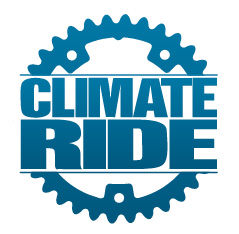
Climate Ride
2023 - $8,000 General Support
2022 - $8,000 General Support
2021 - $6,000 General Support
2020 - $6,000 General Support
2019 - $6,000 General Support
2018 - $3,000 General Support
2017 - $3,000 General Support
2016 - $3,000 General Support
2015 - $3,000 General Support
Climate Ride is a 501(c)(3) nonprofit organization that organizes life-changing charitable biking, running, and hiking events to raise awareness and support sustainability, active transportation, and environmental causes.
Climate Ride, founded in 2008, inspires and empowers people to work toward a sustainable future. Climate Ride unites advocacy and philanthropy. We use sport as a means to change lives and build an effective, citizen-based sustainability movement.
You have the right to a healthy environment, yet the environment is one of the least funded sectors in American philanthropy. Climate Ride aims to change that. Climate Ride creates opportunities for people to engage in a way that is uniquely positive, life-affirming, and transformational while providing grants to environmentally-focused non-profits. Climate Ride participants take on a challenge much bigger than themselves and share their journey with their personal networks helping to amplify support for the cause. Our organization endeavors to foster environmental giving as a priority for new and seasoned donors. Climate Ride is the only organization taking this approach in the environmental sector. Our goal is to bring people and nonprofits together to inspire action and make protecting the planet a philanthropic priority for everyone.
We create and organize multi-day bike rides, runs, and hikes, as well as virtual and independent events. These challenges serve as a catalyst for participants to engage new stakeholders and strengthen advocacy for the environment while creating a substantial grants program for environmental and active transportation non-profits. Climate Ride supports participants with strategies to help reach out to thousands of people as they raise funds for our grants program. This creates unique opportunities to push for environmental justice and climate advocacy. Participants get to select the projects and organizations they fund from a list of groups working on climate change, environmental justice, clean energy, active transportation, sustainable infrastructure, and public health.
We are all feeling concerned, anxious, or overwhelmed by climate change. The threats to our world are numerous and growing more complex each day. While so many people care deeply and want to help address the problem, the enormity of the challenge and the political tone around climate change can feel dispiriting and disempowering. Climate Ride offers a way to make a difference while building new friendships and connections with a global network of outdoor advocates.
Our mission is to inspire and empower citizens to work toward a sustainable future. By using personal challenges as a means to change lives, Climate Ride is building an effective, citizen-based sustainability movement. Climate Ride empowers participants to actively engage in the fight against climate change by completing multi-day outdoor adventure events to fundraise for the organizations they value most and take action together for the planet. Our community proves that immersive outdoor experiences and personal challenges are powerful tools for generating the behavioral change to help ignite activism on climate policy, raise critical funds, and influence public opinion.
Take Dave for example. Dave is a retired firefighter in California who Dave heard about Climate Ride from a local bike coalition he donated to annually. He decided to take on the challenge and along the way raised several thousand dollars. On the ride, he was inspired by speakers and found a movement he could believe in. Since that first ride, he’s raised over $50,000 for Climate Ride grants program and become a huge advocate in his community. Climate Ride is a growing movement of people like Dave who are joining together to take positive action to help our planet.
At a Glance:
Because of the extraordinary efforts of the record 600 Climate Riders, Runners, and Hikers in 2019, Climate Ride awarded over $800,000 in grants. These powerful grants have resulted in direct support to help fight legal battles for public lands and clean air. Climate Ride amplified diverse voices in sustainable transportation and provided funds for organizations building safer options for bicyclists and walkers. These grants have led to renewable energy projects in national parks, relieving pollution in critically impacted ecosystems. Climate Ride helped brace an environmental movement that needs new voices and an active citizenry willing to walk the walk and bike the bike.
We expanded our Community Leaders awards program, which provided unparalleled opportunities for young sustainability leaders to experience the enrichment and inspiration of a Climate Ride. Our inaugural Green Fondo Weekend event engaged a record 250 cyclists – 70% of whom were new to the Climate Ride cause. Overall, we delivered 107 grants to beneficiaries working in sustainability, renewable energy, climate action, conservation, and public health. In 2020, Climate Ride needed to postpone several events due to challenge of the COVID-19 Pandemic. We launched a new virtual event, Climate Rise, which brought together over 400 people for the cause, and generated more than $100,000 in grants.

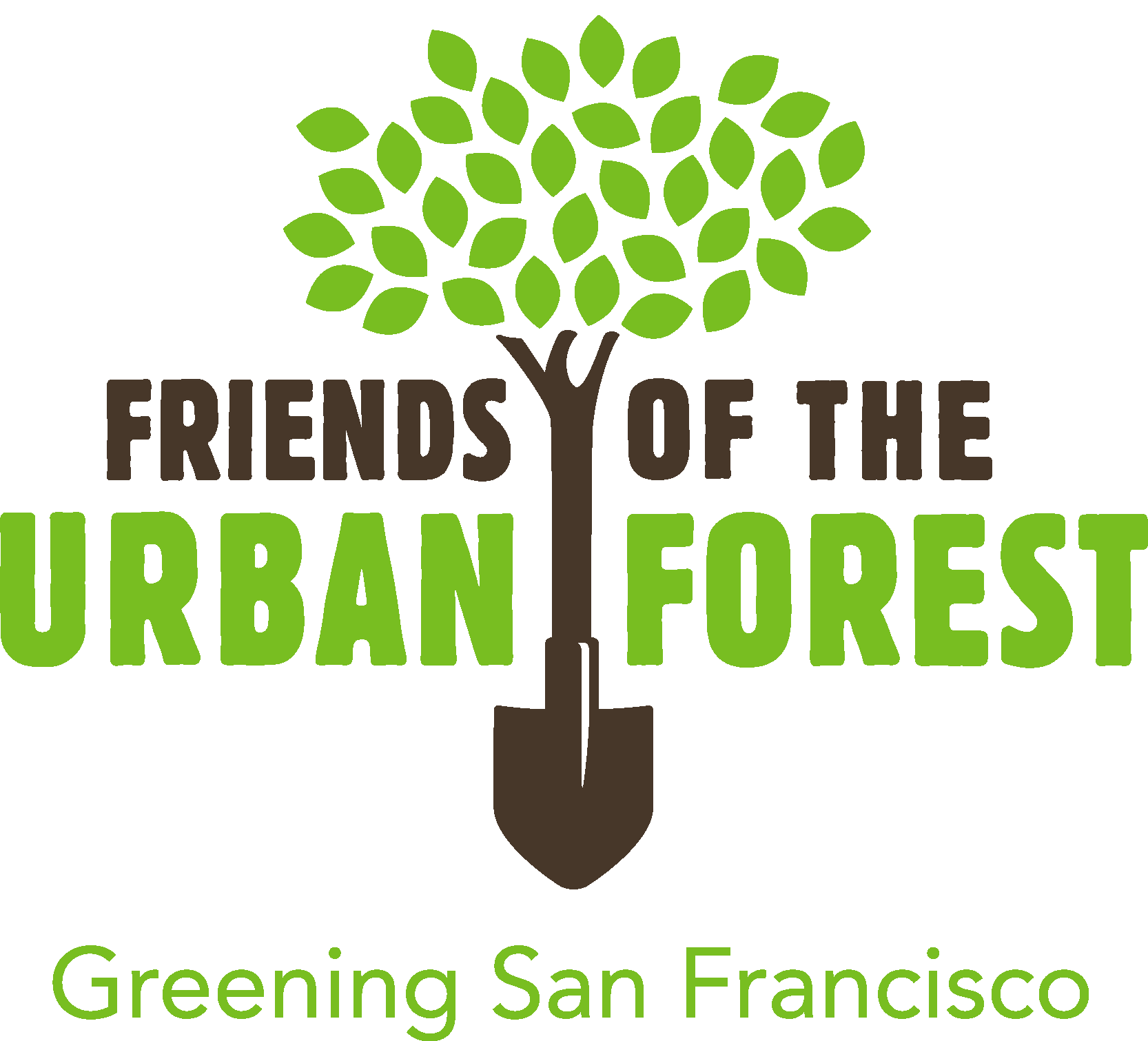
Friends of the Urban Forest
2023 - $5,000 General Support
2019 - $15,000 General Support
2007 - $10,000 General Support
Friends of the Urban Forest (FUF) promotes a larger, healthier urban forest as part of San Francisco’s green infrastructure through community planting, tree care, education, and advocacy. Each year, FUF helps communities plant nearly 1,000 trees. Neighbors organize the plantings, while FUF obtains permits, removes sidewalk concrete, supplies tools and materials and selects, purchases and delivers the trees. On planting day, FUF volunteers work side-by-side with residents. After the work is done, everyone celebrates over a community lunch.In 1995, FUF formally instituted Tree Care to improve tree health and to increase survival rates - certified arborists, assisted by volunteers and trainees, prune and re-stake existing street trees. Tree Care aims to provide essential maintenance services and to educate neighbors, through mailings and hands-on assistance, on how to care for their trees. FUF is committed to increasing its resources for Tree Care, which is essential to maintain and enhance the community’s investment in San Francisco’s urban forest.
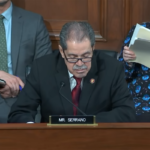

Island Press
2023 - $10,000 Founders’ Pot
2022 - $10,000 Founders’ Pot
2021 - $15,000 Diversity, Equity and Inclusion Work
2021 - $10,000 Founders’ Pot
2020 - $15,000 Online Programming During COVID-19 Pandemic
2020 - $25,000 Founders’ Pot
2019 - $25,000 General Support
2018 - $5,000 Founders’ Pot for General Operating Support
2017 - $5,000 Founders’ Pot for General Operating Support
2017 - $5,000 General Support
2016 - $5,000 General Support
2015 - $5,000 General Support
2014 - $5,000 General Support
2013 - $10,000 Sustainability Knowledge Network
2011 - $5,000 General Support
Island Press supports the environmental community in advancing their knowledge and practice which, ultimately, improves the natural systems on which humankind depends. A non-profit organization, its mission is to provide the best ideas and information to those seeking to understand and protect the environment and create solutions to its complex problems.
From its growing network, Island Press identifies promising thinkers, inspiring stories, and game-changing ideas to publish some 30 books each year. Island Press’ publishing expertise delivers critical information that enhances the work of thousands of professionals striving to create healthier, more sustainable, and more just communities. Today, Island Press is one of the nation's leading providers of environmental ideas and solutions.
Island Press’ goal is to spark lasting solutions to environmental problems. Its approach is two-fold:
Island Press identifies and shapes the best ideas, methods, and approaches into accessible content. The most valuable lessons come from those who are doing the work—the scientists, activists, and professionals who are leading change every day. But these problem-solvers often need guidance on how to share their experience with others. Without the editorial and communications support Island Press provides, important new voices would be left unheard, and effective approaches unknown.
The field needs cutting-edge information and practical solutions to a wide range of problems. Island Press taps into a distribution network of environmental movement leaders, researchers, policymakers, professionals, and the public. The organization’s reach extends into many areas, ranging from transportation planning and food systems to affordable housing and green space.
Setting this work apart from for-profit publishers, Island Press is committed to providing reliable, science-based knowledge in digital formats—webinars, articles, opinion pieces, and online courses—most of them free.
Island Press has developed a body of environmental literature that is considered by many to be the most comprehensive, rigorous, and innovative available. This work is shaping policies, establishing thought leaders, and advancing influential concepts that have had important real-world impacts.
Creating Safer Streets for All: Publishing the Urban Street Design Guide guided billions of dollars in infrastructure spending for energy-saving, carbon-reducing public transit and pedestrian-friendly streets across the country.
Reducing Toxic Chemicals: The award-winning Whitewash: The Story of a Weed Killer, Cancer, and the Corruption of Science led to limits on the cancer-causing chemical glyphosate (the main ingredient in Roundup) in several countries, as well as on college campuses and public lands across the U.S.
Regulating Overfishing: The Most Important Fish in the Sea led to the first-ever limits on menhaden fishing, which had reached unsustainable levels. The quota resulted in a 26% reduction in the menhaden catch—a huge victory for fishing communities and conservationists.
As workplaces closed and events were canceled, Island Press moved quickly to create more online offerings for professionals and students who were now working from home. Island Press released a dozen e-books for free and nearly tripled its schedule of free webinars for professionals. As a result, attendance to online trainings more than doubled. This evolving approach helped the organization grow the number of people it serves, and has widened its geographic reach.


New York Botanical Garden
2023 - $15,000 Visionmaker
The New York Botanical Garden (NYBG) has been a connective hub among people, plants, and the planet since 1891. We’re rooted in the cultural fabric of New York City, here in the heart of the Bronx—its greenest borough. For more than 130 years, we’ve invited millions of visitors to make the Garden part of their lives, exploring the joy, beauty, and respite of nature. NYBG’s 250 acres are home to renowned exhibitions, immersive botanical experiences, art and music, and events with some of the most influential figures in plant and fungal science, horticulture, and the humanities. We’re also stewards of globally significant research collections, from the LuEsther T Mertz Library collection to the plant and fungal specimens in the William and Lynda Steere Herbarium, the largest such collection in the Western Hemisphere.
Amplifying the role of plants in solving the climate and biodiversity crises is a primary focus in our latest strategic plan, Branching Out, which officially launched in January 2024. Paramount to the future of the Garden is our strategic approach to Urban Conservation led by Dr. Eric Sanderson, Vice President for Urban Conservation. In his role at NYBG, Dr. Sanderson is tasked with advancing nature-based solutions to environmental issues and working with New Yorkers to visualize a nature-full city, secure community input on future plans, raise public awareness, advocate on a citywide scale, green the landscape, and ultimately, make New York City more resilient to the effects of climate change.
Core to Dr. Sanderson’s strategy is Visionmaker, a digital tool that enables New Yorkers to better contend with the environmental challenges in our backyard and beyond. Visionmaker is a platform for ecological democracy for the citizens of New York City that strives to empower and embolden everyday citizens to utilize their voice (and technology) for climate change planning. Using the website, users can investigate the city’s ecology in three timeframes: the past, the present, based on the current distribution of ecosystems and lifestyles in the city, and the future, as generated by the user’s imagination and using scientific models to estimate different ecosystem and ecological scenarios. Once a user has created a vision that matches their expectations, it can be shared through the interface with others, who can then borrow and build their vision, thereby shaping an idea of what the future of NYC could look like in the face of climate change.
In this next phase of Visionmaker, Dr. Sanderson and his team seek to take the website to the next level by converting the carbon model in Visionmaker from JavaScript to Python code and testing the digital tool in a new cloud-based server. Following the update, anyone with an Internet connection can contribute their ideas for the future of their neighborhoods more effectively and visualize multiple ecological scenarios related to the carbon cycle, which includes predictions of carbon dioxide and methane and transportation and climate-dependent buildings submodels. Although currently focused on New York City, the online platform is designed for expansion and portability to other cities and for enthusiasts and experts alike. Visionmaker NYC is just one example of how NYBG meets the moment.


Open Plans
2023- $15,000 General Support
Founded in 1999 as a nonprofit organization dedicated to making New York City more livable, Open Plans works to foster a more connected relationship between New Yorkers, their streets, and their city government. In its early years, the organization focused on developing mapping tools as a way to analyze the issues that affect New Yorkers on a block-by-block basis. Using the information gathered, the organization began to not only map the issues but develop and propose solutions. Topics included public transportation; the use of streets as spaces for community gathering, neighborhood celebration, and events; public safety challenges caused by car dominance; lack of infrastructure for micromobility and pedestrians; and the desire for more equitable access to accessible, safe, public spaces.
In 2004, Open Plans launched Streetfilms, a project that produces and publishes short films highlighting best practices for transportation systems and public spaces around the world. These informative, playful, and inspiring films continue to fuel advocacy efforts today -- and garner huge wins the world over, including the launch and expansion of a robust protected bike lane network in New York City, bike access across the Queensboro and Brooklyn Bridges and complete redesigns of iconic areas such as the Meatpacking District in Lower Manhattan.
In 2006, Open Plans launched Streetsblog, a daily news source providing deep dives and insider scoops, chronicling the transportation and livable streets scene in New York City and beyond. Inspiring offshoots in many of the major cities in the United States, Streetsblog has become a one-stop shop for all the news that’s fit to discuss regarding transportation, policy, planning, advocacy, budgets, and more. Its readership includes hobbyists, urbanism professionals, and city officials alike. From their annual Parking Madness awards to their recent coverage of the fight for safe and equitable public spaces for all, including the right to protest and the rights of delivery workers, Streetsblog is always on the cutting edge.
In 2008 and 2009, Open Plans launched the New York City Streets Renaissance Campaign, in collaboration with Transportation Alternatives and Project for Public Spaces. This campaign challenged the auto-centric policies that create congested and unsafe, inhospitable streets. This work led to the first protected bike lanes in New York City, along 9th Avenue in Chelsea, along with years of streetscape changes on the Upper West Side.
Between 2010 and 2015, Open Plans built on their success and merged their tech and advocacy foci, working with municipalities on tools for mapping and advocated for open source data tools for people to engage with their communities. The organization created maps allowing people to indicate issues in their neighborhoods, specifically around mobility and public space. Working with schools became a major focus; a new education and advocacy arm of the organization taught students how to identify safety issues on their commutes to school and empowered them to navigate their paths more safely. This work often led to students learning more about urban design and civics. Through drawings, petitions, and letters, students spoke at community boards and even engaging with elected officials, learning the power of civic engagement.
By late 2018, StreetopiaUWS was created to reinvest in Open Plans’ long-standing work in the Upper West Side neighborhood of Manhattan. Rooted in grassroots advocacy, Streetopia’s debut campaign was launched to educate people about public space management and start advocating for the city to care for public spaces, especially in residential areas. Today the place-based project works intimately with Upper West Side residents, decision makers, and other stakeholders to achieve safer bike routes and promote a people-centered mindset to placemaking and planning.
The Covid-19 pandemic created unprecedented challenges for New York City but ushered in a new era for Open Plans. As the city was forced to repurpose space for safe, outdoor public gatherings, many guiding principles of livability and people-centered space became commonplace. Suddenly, congested streets were transformed into car-free community space; curb lanes once relegated to parking were transformed into business-saving outdoor cafes. Open Plans seized on this spirit of innovation and gained momentum. The new Open Streets program offered a first-ever opportunity for communities to reprogram their streets for strolling, playing, dancing, and learning – and led to Open Plans’ campaign for a central Office of Public Space Management that would care for and invest in these burgeoning spaces as city services. The organization hired new policy expertise and pursued systemic change in city government while connecting directly with communities at the grassroots level.
This dual focus, with Streetsblog and Streetfilms creating compelling media, is a hallmark of Open Plans’ unique approach. Today, Open Plans continues to grow its nimble and focused staff. With a focus on advocacy, journalism, and inspiring film, Open Plans is illuminating new possibilities and creating meaningful change for every resident of New York City.
Regional Plan Association
2023 - $20,000 Congestion Pricing
Regional Plan Association is a non-profit organization that conducts research, advocacy and planning to improve quality of life for all residents in the New York City metropolitan area. RPA conducts groundbreaking research on issues such as land use, transportation, the environment, and economic development. It also leads advocacy campaigns to foster a thriving, diverse, and climate friendly region and partners with local government to help them grow in an inclusive and sustainable way.
For over 100 years, Regional Plan Association has been an indispensable source of ideas for policy makers and opinion shapers across the New York City metropolitan region. Some of the NYC region’s most significant public works, economic development initiatives, and open space projects have their roots in RPA ideas and initiatives.
A cornerstone of RPA's work is the development of long-range plans and policies to guide the region’s growth. Since the 1920s, RPA has produced four landmark plans for the region. The most recent was released in November 2017.
One of the ideas RPA has been advocating is a tolling program for Manhattan's Central Business District, otherwise known as congestion pricing. For decades, RPA has been saying that the program is vital to managing traffic, raising revenue for public transit, and helping reduce pollution. RPA has coordinated a number of efforts over the years to build support for congestion pricing, and after a few failed attempts, was finally successfully in receiving New York State's authorization for the program in 2019.
Beyond advocacy on congestion pricing, RPA has released a series of more technical documents, to help ensure the program is implemented in a manner that reduces local traffic especially in neighborhoods already overburdened, build trusts with the public, and treat residents from different geographic areas fairly. In 2019, RPA released Congestion Pricing: Getting it Right with the support of many civic leaders. RPA has also produced maps and fact sheets explaining the transit benefits of the program for communities across NYC.
RPA currently co-leads the Congestion Pricing Now coalition with a few partner organizations and continues its robust media and outreach work in anticipation of the implementation of the congestion pricing program in spring 2024. Congestion pricing is officially called the Central Business District Tolling Program and is being managed by the MTA.
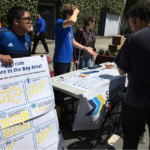
Seamless Bay Area
2023 - $15,000 Integrated, Affordable Bay Area Transit Fares
2020 - $15,000 General Support
Public transportation in the Bay Area is broken, with 27 separate transit agencies operating with little coordination and without a regional vision. As a result, transit riders in the Bay Area must navigate unreliable service, slow speeds, lack of connections, and confusing wayfinding information. It's no wonder only five percent of all trips in the Bay Area are on transit.
The Bay Area's lack of a connected, convenient public transportation system hurts everyone. It leaves many people with no option but to drive everywhere, spending more of their paycheck on transportation costs, and more of their time in long commutes. It’s bad for the economy, for equity, and for the environment. In addition, the COVID-19 pandemic has further weakened the region’s transit system, reducing agency budgets and leading to major service cuts that disproportionately impact transit-dependent people and essential workers.
It doesn’t have to be this way. Seamless Bay Area was founded in 2017 with the goal of transforming the Bay Area’s fragmented and inconvenient public transit into a truly world-class, integrated, equitable system that connects people and communities across our nine-country region. Through research and thought leadership, public education and engagement, and grassroots advocacy, Seamless Bay Area is building a coalition of elected officials, transit leaders, riders, and advocates committed to changing the region’s transit system for the better.
While transit operators across the country - including in the Bay Area - are currently facing the worst financial and operational crisis in a generation, there are also unprecedented opportunities to bring about transformative change.
Seamless Bay Area’s original proposals, maps, and interactive tools are helping Bay Area leaders and community members understand how the region’s transit system could be improved, and galvanizing them to take action.
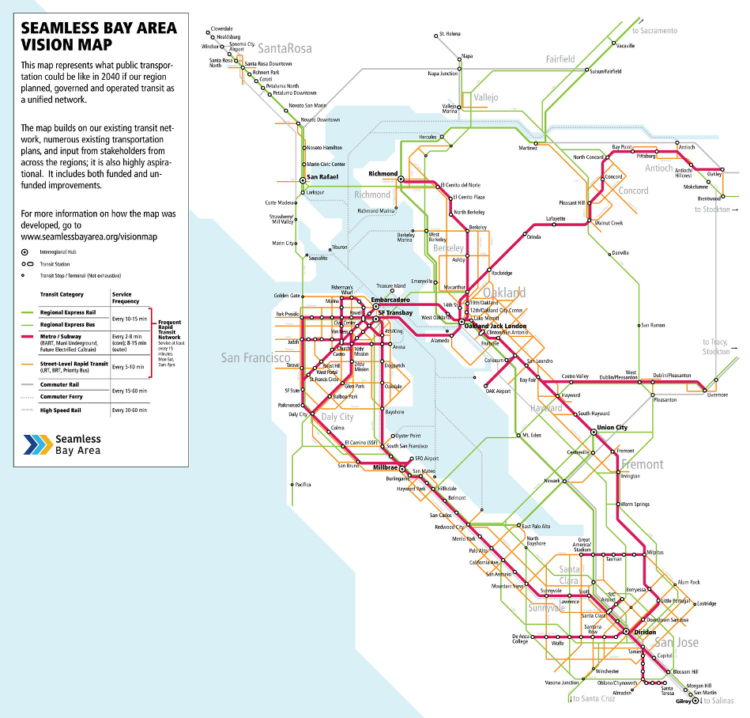
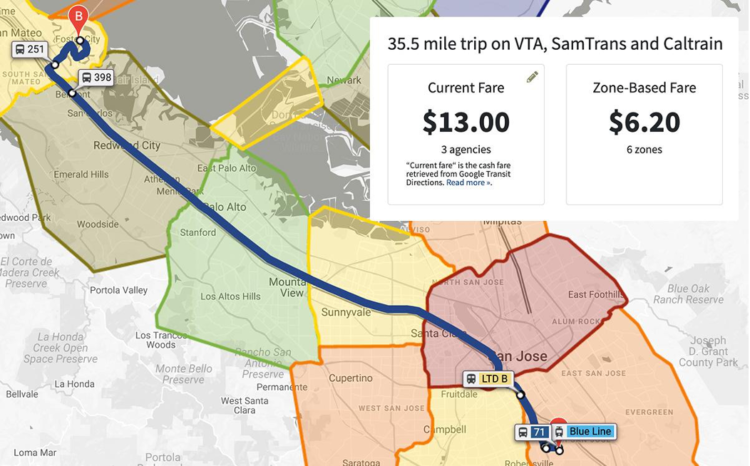
Through regular public webinars, information sessions, networking events, and rider forums, Seamless Bay Area is educating the public, building broad support for transit improvements, and amplifying the voices and perspectives of transit riders.
In 2019, Seamless Bay Area launched a set of seven Seamless Transit Principles to build support among members of the public, elected officials, organizations, and jurisdictions for integrated, rider-friendly transit. To date, the principles have been endorsed by over 35 organizations, including SPUR, TransForm, and Urban Habitat; by cities and counties representing millions of Bay Area residents; and by over 1,800 individuals.
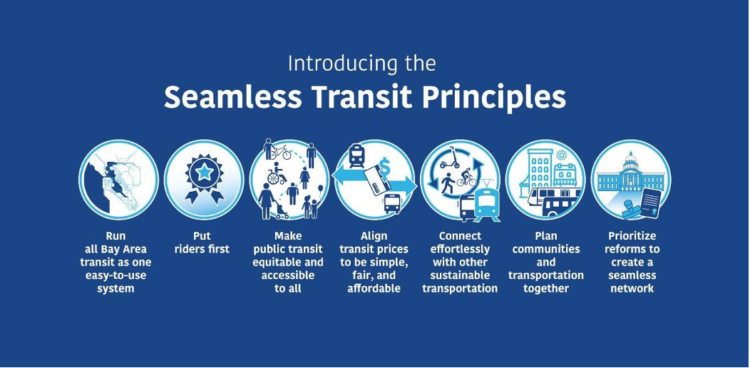
Seamless Bay Area has also partnered with leading experts to conduct research on international best practices for well-coordinated, affordable, high-ridership transit systems, and educate transit agency leaders, staff, and policymakers on best practices.
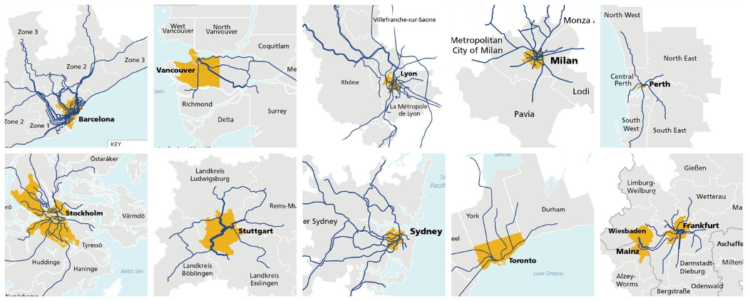
Thanks to the group’s successful advocacy to date, in 2020 Seamless Bay Area was invited to serve on the region’s 32-member Bay Area Blue Ribbon Transit Recovery Task Force, a group convened for the purpose of helping Bay Area transit operators navigate and recover from the COVID crisis. Seamless Bay Area also serves on the region’s Fare Integration Stakeholder Group, which is shaping a regional Fare Coordination and Integration Study with the potential to make transit more convenient and affordable in the Bay Area for many years to come.
By articulating a clear vision for change and building a growing coalition of support among transit leaders, advocates, and the general public, Seamless Bay Area is uniquely well-positioned to lead the way toward the integrated transit system the region deserves.
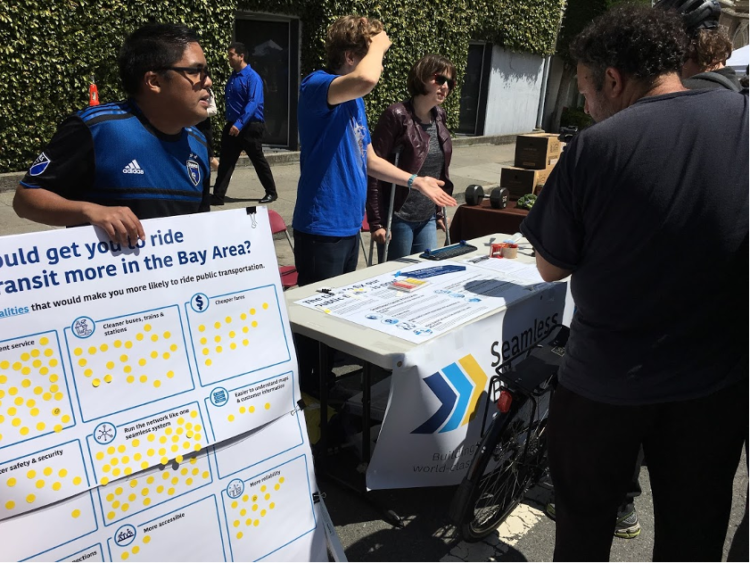
Spring Street Climate Fund
2023 - $15,000 Zero emission school buses
Addressing climate change is a central challenge of this moment; the actions taken today will help determine the safety and prosperity of billions of people living today and set a framework for generations to come.
New Yorkers are uniquely positioned to have an outsized impact on climate outcomes around the globe. New York is the world’s 11th largest economy; what happens in New York can build markets, reshape industries and incentivize billions of dollars of investment. As a prominent large state, New York’s actions set a precedent that can scale to other states and the country as a whole.
That’s where Spring Street Climate Fund comes in. Spring Street identifies opportunities to win climate policy in New York that can make a difference globally, and partners with grassroots organizations throughout the state to turn ambitious ideas into public policy. Spring Street acts as a force multiplier in the climate movement, helping supercharge the grassroots organizing that can turn New York into a powerful force for progress.
Since its founding in 2021, Spring Street has helped win progress on bold new policies, including:
As part of its mission to identify opportunities for New York to make an outsized difference on climate policy, Spring Street is also working to make New York the first state in the nation to fully transition away from diesel school buses and to clean, zero-emissions school buses statewide.
Diesel school buses are not only a climate change issue - emitting high levels of greenhouse gasses like carbon dioxide - but also a public health and environmental justice issue: the air in a school bus is up to 12 times as toxic as the ambient air outside the bus. This hurts the children breathing the dirty air on their buses, and hurts environmental justice communities where school bus depots are disproportionately located. The challenge is vast, and the opportunity for New York to use its unique leverage to address the problem is immediate and real.
New York has nearly 50,000 school buses in operation across the state, approximately one out of every ten buses nationwide. By transitioning its entire school bus fleet to zero-emissions vehicles, New York can help to bend the cost curve and make electric school buses cheaper for everyone - changing the economics of zero-emissions buses not only for its own school districts but for states across the country.
In 2022, Spring Street supported the successful grassroots campaign to make New York the first state in the country to require the transition of its entire fleet to zero-emissions buses. In its 2022 state budget, New York became the first state in the country to mandate the transition of its entire fleet to zero-emissions buses. Spring Street then supported a public education campaign to secure $500 million in funding to help school districts around the state make the transition to zero-emissions school buses through the Environmental Bond Act.
But the campaign is not yet complete. Winning a law in Albany is not the same as making the change a reality on the ground. Today, Spring Street Climate Fund is partnering with grassroots organizations in New York State to ensure that policymakers and elected leaders remain accountable to the promises they have made to implement a full transition to a zero-emissions bus fleet.
If the effort is successful, full implementation of New York’s school bus law will reduce direct emissions while also building the nation’s first statewide market for zero-emissions buses, reducing the cost of clean school buses not just in New York but for consumers nationwide.

SPUR (formerly San Francisco Planning + Urban Research Association)

SPUR (formerly San Francisco Planning + Urban Research Association)
2023 - $20,000 Transit Oriented Communities
2021 - $15,000 Transit Priority Program
2019 - $10,000 Operational Landscape Units Project
2018 - $20,000 Regional Plan
2017 - $10,000 Operational Landscape Units Project (with SFEI)
2017 - $10,000 Framework for Sea-Level Rise Adaptation
2016 - $15,000 Framework for Sea-Level Rise Adaptation
2014 - $15,000 Fossil Fuel Reduction Report
2010 - 2014 $38,000 Food Systems and Urban Agriculture Program
2007 - $5,000 General Support
Through research, education and advocacy, SPUR works to create an equitable, sustainable and prosperous region. SPUR practices urban policy, developing and advocating for ideas and reforms to bring about systems change. The decisions that shape housing, transportation, land use, economics, food access, sustainability and resilience have significant impacts on people’s lives. SPUR also focuses on governance because it’s how communities organize themselves to achieve collective goals and because SPUR believes in the power of government as a force for good. SPUR works across the nine counties of the Bay Area because the structural systems that shape people’s lives— the housing market, the transportation network, the economy — are regional. SPUR does deep work in San Francisco, San José and Oakland because policies set in the region’s three biggest cities have widespread impact on most Bay Area residents and because local context is critical for effective policy. SPUR believes that community and individual well-being are healthiest when a society achieves equity, sustainability and prosperity. Equity because systemic racism continues to create unjust and unacceptable outcomes for many members of our community. Sustainability because human well-being depends on a healthy and thriving natural environment. And prosperity because meeting individual and collective needs requires resources. SPUR conducts its work through research, education and advocacy because these tools have the power to change minds and shape outcomes. The organization believes that profound systems change requires addressing beliefs, relationships and policies, and SPUR works at all three of these levels. SPUR grounds its work in a spirit of inquiry and a big-tent perspective that engages partners and communities across the region.
SPUR has many key goals related to each of the organization's major policy areas, including:
Planning: Add new jobs and housing where they will support equity and sustainability, and make neighborhoods safe and welcoming to everyone.
Housing: Make housing affordable for everyone.
Transportation: Make it fast, easy and inexpensive to get around without driving alone.
Sustainability + Resilience: Eliminate carbon emissions and make communities resilient to climate change.
Economic Justice: Enable all people to participate in the region’s thriving economy and attain economic security.
Good Government: Support a high-functioning public sector that serves the collective good.
Food + Agriculture: Create healthy, just and sustainable food systems, and put an end to food insecurity.
SPUR has accomplished many things over the course of its 100+ year history. The organization shaped some of the most important planning and urban policy issues in the region, including planning for the BART system, establishing the Golden Gate National Recreation Area and the Bay Conservation and Development Commission, proposing San Francisco’s Affordable Housing Trust Fund and more. Recent achievements of the organization in 2020, include:
Impact Report attached; our most recent annual report was online only--it is available here: https://www.spur.org/about/annual-reports/2020


Streetsblog
2023 - $12,000 General Support
2021 - $12,000 General Support
2019 - $10,000 General Support
2018 - $8,000 General Support
2017 - $8,000 General Support
2017 - $8,000 General Support
2016 - $8,000 General Support
2011 - $8,000 General Support
Streetsblog is a non-profit daily news source, online community and political mobilizer for the Bay Area’s Livable Streets movement. Streetsblog frames the public debate on transportation and planning issues, creating momentum for more sustainable streets. A team of local writers collaborates with writers throughout California and Nationally to provide full coverage of transportation reform, urban planning and the Livable Streets movement locally and nationwide.
Streetsblog began in 2006 as a single local blog covering transportation and land use issues in New York City. The experiment proved a dramatic success, and it showcased the potential for focused advocacy journalism to empower overlooked constituencies and to usher in a reform-minded transportation policy agenda - SF.Streetsblog was launched in January 2009. The blog quickly became an influential voice and a mobilizer for the local transportation reform movement. Today, it reaches nearly 70,000 direct monthly readers, and plays a key role in the Bay Area’s Livable Streets movement. Their work is published on SF Gate and Bay Citizen. Streetsblog’s drumbeat of pedestrian, bicycle and transit stories have helped keep these important issues on the radar of supervisors and policy makers at City Hall and the San Francisco Municipal Transportation Agency.

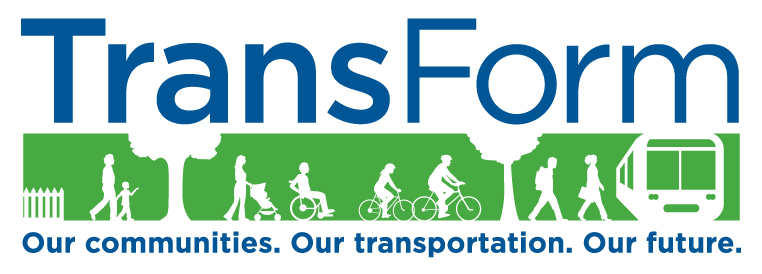
TransForm
2023 - $15,000 Survive and Thrive Transit
2019 - $15,000 General Support
2016 - $10,000 General Support
2015 - $10,000 General Support
For nearly eighteen years TransForm has helped envision and advocate for affordable, walkable neighborhoods with a wide variety of transportation choices to connect residents to health care, schools, shopping and work. The Innovative Cities project plans to integrate new mobility options, such as car-sharing and bike sharing, into community development, with special consideration given to Oakland and San Jose. The GreenTRIP Connect program is developing a web-based interactive map that documents the economic, health and environmental benefits of on-site car sharing and bike sharing with free memberships, and free transit passes for residents.

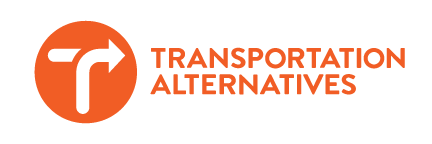
Transportation Alternatives
2023 - $20,000 20x20 Project
2022 - $10,000 General Support
2011 - $5,000 General Support
Transportation Alternatives (TA) works to reclaim New York City’s streets from the automobile and to advocate for better walking, biking, and public transit for all New Yorkers. Through grassroots organizing and strategic communication campaigns, TA advances infrastructure and policy improvements that prioritize people, create safer streets, and ultimately realize a more accessible, sustainable, and equitable city. TA engages thousands of stakeholders each year through its advocacy work, including community residents, peer nonprofit organizations, civic coalitions, business leaders, elected local and state officials, and government agencies. Their campaigns reshape streetscapes into safe places where people can walk, bike, meet, play, and participate in the variety of activities that make urban living healthy, vibrant, and dynamic.
In the past five decades, TA has made remarkable progress. Today, bike lanes ribbon up and down Manhattan avenues. Hundreds of thousands more ride a bike to work every day. The city is equipped with dedicated bus lanes, public bike share, and car-free park spaces that did not exist five decades ago. In just the last two decades, TA advocacy was responsible for the introduction of America’s first protected bike lanes and the world’s largest speed camera program. TA lowered the citywide speed limit for the first time in 50 years, and introduced Vision Zero to New York City, an idea which then spread across the U.S. The same story is true of the federal Safe Routes to Schools and Safe Routes for Seniors programs.
The few who founded Transportation Alternatives recruited and multiplied, and now TA’s tent of supporters is packed with New Yorkers who regularly take action, make the case to public officials, and testify to the importance of TA’s mission. Each week, TA organizes local meetings, protests, rallies, petition drives, community gatherings and on-street actions to amplify voices. By the power of these people and a track record of transformative change, TA demands New York City’s most influential decision makers pay attention.
In that time, a remarkable subset of the organization was also born. Families for Safe Streets (FSS) is a coalition of people injured in traffic crashes, and the children, spouses, siblings, and parents whose loved ones have been killed. What began in 2014 as a small group of families in mourning has grown to a citywide force for change, and a national inspiration, with chapter organizations in 14 cities. Together, this powerful group of survivors tell their stories as an unignorable testament to the need for safe streets and refuse to give an inch in defense of the status quo.
From the creation of grand public spaces, like the pedestrianization of Times Square, to the construction of protected bike lanes and pedestrian plazas in all five boroughs, TA and FSS have paved the way for remarkable changes in New York City’s transportation infrastructure and transformed New Yorkers’ understanding of bicycling, walking and public transit.
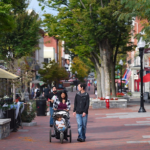

Transportation for America
2023 - $15,000 Reduce VMT/zero emissions vehicles report
Smart Growth America (SGA) envisions a country where no matter where you live, or who you are, you can enjoy living in a place that is healthy, prosperous, and resilient. SGA works across the nation with elected officials at all levels, real estate developers, chambers of commerce, transportation and urban planning professionals, and community members to improve everyday life for people across the country through better development. SGA’s team includes experts in land use, real estate development, transportation, and economic development.
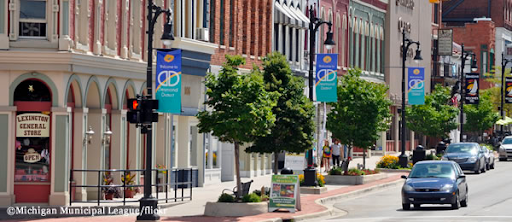
SGA currently focuses on three specific priorities: Climate change and resilience, advancing racial equity, and creating healthy communities. Solving huge challenges like climate change, affordable housing, the need for vibrant local economies, or how to affordably connect people to jobs and services requires an interdisciplinary approach across a span of interrelated areas: housing, zoning, planning, land use, economic development, transportation, and others.
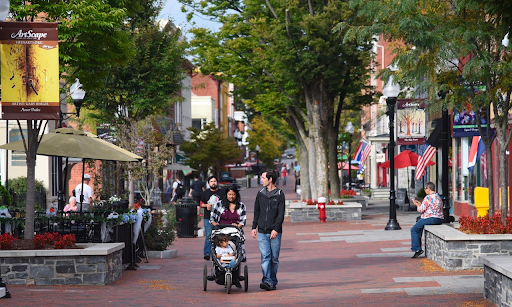
At the core of SGA’s overall approach is empowering communities through direct technical assistance, powerful advocacy, and thought leadership to realize our vision of livable places, healthy people, and shared prosperity.
We are known for path breaking reports like:
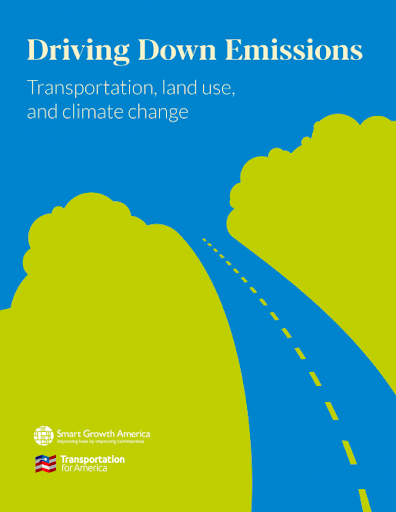
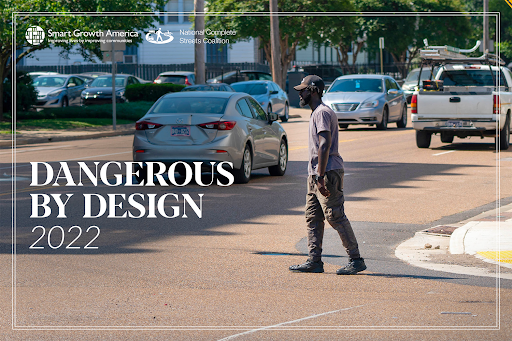
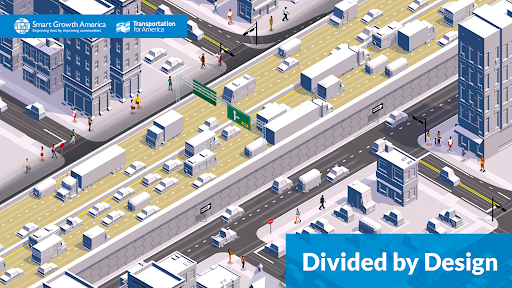
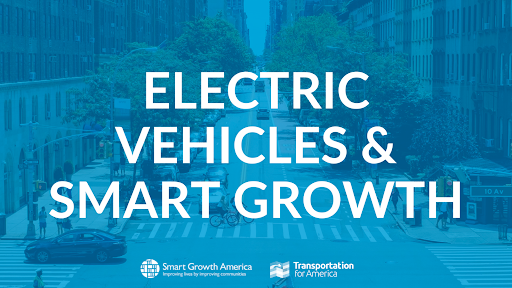
The organization also comprises a number of sub-brands, including Transportation for America, which focuses on creating a transportation system that connects people to jobs and essential services no matter how they travel, how much money they earn or their physical abilities. Our transportation priorities are to:
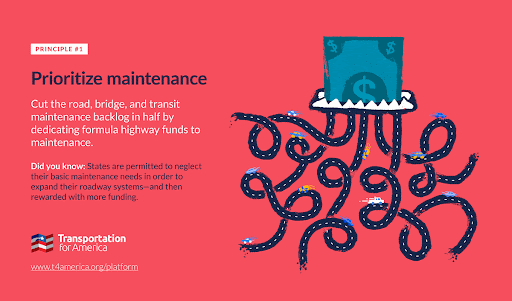
Transportation for America currently partners with the Clean Vehicles Coalition to manage the Coalition for Helping America for Rebuild and Go Electric (CHARGE) to decarbonize the transportation sector through both electrification and improving the efficiency of the transportation system to require less driving.
Transportation for America is currently examining the question: What balance of fleet conversion and reducing driving is needed to keep emissions low enough to stave off catastrophic global climate change? To answer this question, we will:


Walk San Francisco
2023 - $15,000 Climate Justice in the Bayview
2022 - $10,000 General Support
2021 - $10,000 20mph Speed Limit in the Tenderloin: Data Study
2016 - $10,000 Green Connections
2014 - $10,000 Vision Zero
2013 - $10,000 General Support
2012 - $6,000 General Support
San Francisco can and should be the safest, most walkable city in the United States. Yet every day, at least 3 people on average are hit by cars while walking in our city.
Walk San Francisco exists to change this. Walk San Francisco (Walk SF) was founded in 1998 by a small group of volunteers united by the belief that the city’s streets and sidewalks should be safe and welcoming for all.
Today, Walk SF is known as a tireless advocate in pushing for – and winning – life-saving changes across the city. Some defining wins include: 15 MPH speed zones around 181 schools; San Francisco’s second-in-the-nation commitment to Vision Zero; the removal of private vehicles from Market Street; the tax on Uber and Lyft; and groundbreaking changes to some of the city’s most dangerous streets.
Walk SF also founded and supports San Francisco Bay Area Families for Safe Streets, a group of traffic crash survivors and the loved ones of people who have been killed or injured in traffic crashes. Members offer emotional support and work together to win changes to prevent more lives from being destroyed by traffic violence. Each November, Families for Safe Streets and Walk SF hold World Day of Remembrance for Road Traffic Victims
In addition, Walk SF works to increase the number of children safely getting to school on foot, bicycle, scooter, and transit as part of the San Francisco Safe Routes to School Partnership. Walk SF also brings together the voices of the 30+ community-based organizations, nonprofits, and civic groups that make up the Vision Zero Coalition, plus leads the Senior and Disability Work Group. And throughout the year, Walk SF offers a variety of walks to both explore the pure joys of exploring the city on foot and the challenges faced due to unsafe streets.
In 2019, Walk SF launched its first-ever three-year strategic plan. The long-term goals outlined in it are to: 1) end pedestrian traffic deaths and severe injuries, and 2) increase the number of trips people take on foot.
As part of the strategic plan, Walk SF prioritized both what it works on and how it will work. Crash data shows that San Francisco’s residents living in communities of concern suffer the most from traffic violence. These are communities with the most low-income people, immigrants, communities of color, seniors, children, and people with disabilities. That is why while Walk SF works in the interest of all pedestrians in San Francisco, Walk SF prioritizes its efforts on communities and/or geographies where issues of equity are most at play.
Walk SF also focuses its outreach and education in communities and populations that have disproportionately been impacted by traffic violence and often not engaged in the community process. Walk SF works hard to ensure a community’s voice is authentically brought forward to guide advocacy efforts, and build coalitions across diverse communities. That’s why Walk SF goes much deeper in its community engagement and advocacy work in neighborhoods like the Tenderloin, where traffic violence is a daily reality for the nearly 40,000 people who live there.
Walk SF’s vision is for a San Francisco where everyone – of every age and ability – can get around safely. And the benefits of making this vision a reality ripple far beyond the precious lives that will be saved. When it is safe and inviting for many more people to walk in San Francisco, it also means reducing climate emissions. It means thriving neighborhood businesses and greater health. It means changing the fact that people of color are more likely to live, work, and walk on dangerous streets. It means stronger and more connected communities.
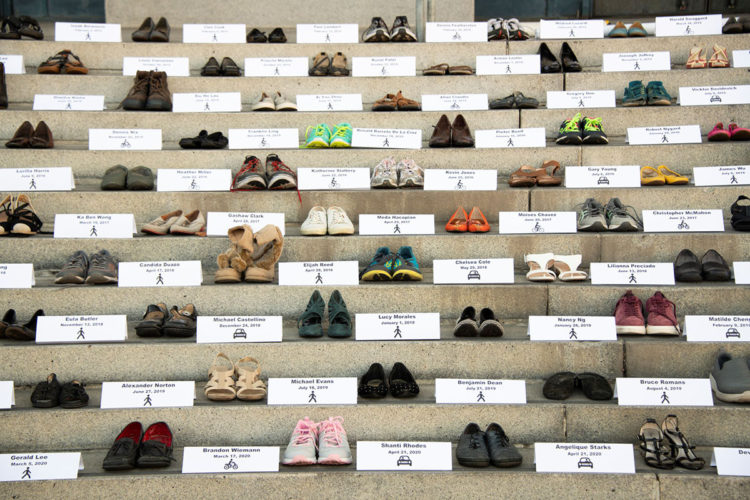
A memorial to the lives lost in traffic crashes in San Francisco since January 2014. From the 2020 World Day of Remembrance for Road Traffic Victims. Photo by William McLeod with permission from Walk SF.
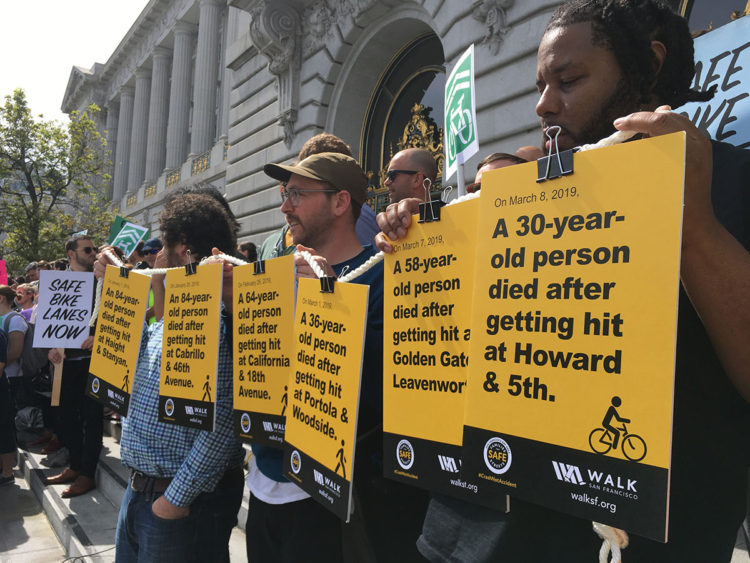
At a March 2019 action on the steps of City Hall to shine a light on recent traffic fatalities. Photo by Walk SF.